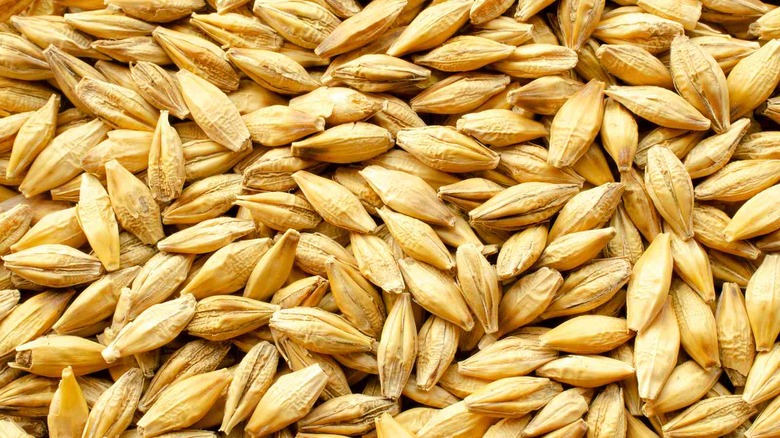Tweaked Barley May Keep Beer Flowing As Climate Change Hits Crops
Climate change is shifting growing seasons and introducing other weather phenomena that may have a major impact on crop yields in the coming years. In addition to farmers making adjustments to their practices to account for these changes, scientists have been developing modified versions of crops using gene-editing tools to help plants withstand changes in local climates.
Crops and climate
Barley is a major crop that, among other things, is used to produce beer. This same crop is particularly vulnerable to changes in climate, as rain that arrives earlier than expected can cause the barley to sprout before it is time to harvest. Barley that sprouts before harvest is worth less on the market, costing farmers money.
Though unexpected weather conditions can happen at any time, climate change is fueling the issue by increasingly disrupting weather patterns. This issue is expected to get worse faster than previously estimated, with a new study warning that farmers only have the next decade or so to adjust how they plant and manage crops to avoid larger losses.
Resistance in genes
Gene editing technology may help mitigate this problem, however, by tweaking barley to remain dormant for longer periods of time, delaying when the grains sprout and potentially helping ensure higher quality barley crops. Researchers with Okayama University in Japan have published a new study detailing this sort of genetic manipulation.
Though genetically modified barley designed to prevent pre-harvest sprouting isn't a new idea, previous work on the matter has encountered problems. Modifying barley so that it remains dormant for longer periods of time may result in germination issues and disrupt malt production, for example.
Dr. Hiroshi Hisano and his team leveraged CRISPR/Cas9 gene-editing technology to target two particular genes in barley called Qsd1 and Qsd2, potentially side-stepping these problems while introducing greater resistance to climate changes.
The team produced single and double mutants and compared them with non-mutated barley samples, finding that the gene-edited samples displayed resistance to early sprouting. The work paves the way for future research into gene editing and how it may be used to modify crops to withstand climate changes. Dr. Hisano explained:
We could successfully produce mutant barley that was resistant to pre-harvest sprouting, using the CRISPR/Cas9 technology. Also, our study has not only clarified the roles of qsd1 and qsd2 in grain germination or dormancy, but has also established that qsd2 plays a more significant role.

